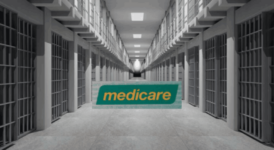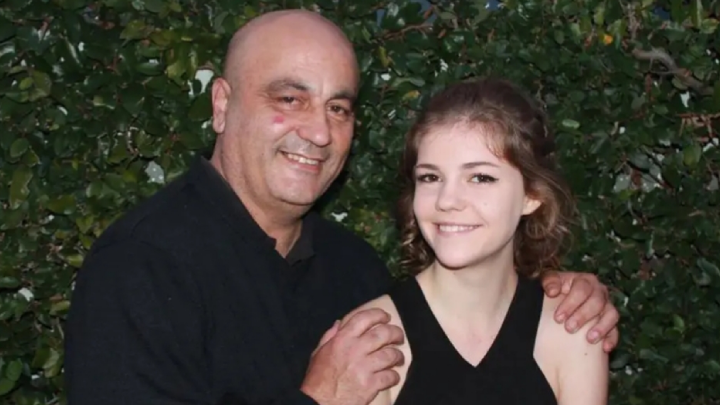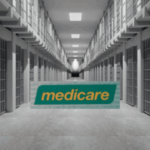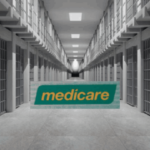Medical Neglect: Albanese Must Deliver Labor’s Long-Promised Medicare into Prisons

“It is my experience, in general, people come out of prisons in worse conditions than when they commenced the situational trauma of incarceration,” Gerry Georgatos remarked, in commencing the keynote speech at the Indigenous Justice Forum in Brisbane on Thursday.
The founder of the National Suicide Prevention and Trauma Recovery Project and NSPTRP project officer Connie Georgatos made the case that prison should be an opportunity to assist marginalised individuals into health, however, on incarceration, inmates are stripped of their Medicare rights.
Since 1984, Medicare has been providing free or heavily-subsidised healthcare to Australian citizens and residents. Yet, once behind the walls of prison, inmates find no readily accessible healthcare, no Pharmaceutical Benefits Scheme and no National Disability Insurance Scheme.
Having worked inside, Connie told the forum that she’s witnessed inmates with cancer being given headache pills, as healthcare provided in gaol is substandard and often denied, while she considers that time could be used to improve prisoners’ health, which, she posits, would lower reoffending.
And the father and daughter team, who’ve long been campaigning for the law reform, are not alone.
The Australian Medical Association (AMA) has just renewed its calls for reform on this matter, as have federal Greens politicians, while expressing disappointment over Closing the Gap outcomes.
Compounding health issues
“More than 70,000 Australians are turnstile incarcerated annually,” Gerry explained. “Because of the abominably prolonged sins of the invader nation, a third, nearly 25,000, are disproportionately descendants of the First Peoples.”
“Let us not forget the children, as young as 10,” the social justice advocate continued. “Nearly 4,500 are in child prisons annually. All denied Medicare.”
The prison reformist was pointing to the fact that official ABS custody figures don’t reflect the flow population, which is constantly rotating through the Australian prison system.
There were 41,929 adult inmates in the nation’s correctional facilities last June, and 33 percent or 13,852 of these individuals were First Nations people.
Among the most incarcerated people on Earth, Aboriginal and Torres Straits Islander inmates were only 14 percent of the prison populace in 1991.
The Australian Institute of Health and Welfare reported in 2018 that 40 percent of prison entrants are suffering a medical condition on entry, while the same portion of prisoners report a previous diagnosis of a mental health condition, including alcohol and other drug use disorders, on entry.
Yet, the accounts that NSPTRP has provided Sydney Criminal Lawyers in the past, reflect a system that involves corrective institutions providing poor quality healthcare, if that, as often it can simply be denied.
“It is established and self-evident that nearly all of Australia’s prisoners are people living in the lowest quintile of income,” Gerry added, pointing to the opportunity to restore these people’s health. “Additionally, they also comprise the quintile of the weakest primary and secondary health.”

A matter of neglect
Section 19(2) of the Health Insurance Act 1973 (Cth) stipulates that Medicare is not available if any level of government, a local governing body or an authority established under government, is already providing professional healthcare services.
According to Gerry, this hold on Medicare was legislated on the understanding that the states and territories would handle prisoner health.
So, the measure was supposed to prevent federal claims on medical expenses that had already been covered by state authorities.
However, corrective service departments nationwide have instead neglected to provide an adequate healthcare system inside to the point that at its most extreme this leads to deaths in custody as pleas for assistance are ignored.
That poor care awaits prisoners is common knowledge. Labor has proposed that it would provide Medicare to prisoners in the past.
The situation of healthcare in prisons has simply been left to grow worse, like the hanging points that still remain in NSW prison cells despite the 165th recommendation of the Royal Commission into Aboriginal Deaths in Custody having raised the need for their removal in 1991.
“The Australian Labor Party argues Medicare is universal and, at times, has included in their national policy platforms a promise to end the health discriminations of the incarcerated,” Gerry told the audience at the Indigenous Justice Forum. “They are yet to do so.”
Missed opportunities
The Australian Medical Association announced early last week that it is calling on the federal government to roll out Medicare and the PBS into prisons, which came as the inquest into the death in custody of Yorta Yorta and Gunaikurnai man Joshua Kerr found inadequate health assessments.
Indeed, the large prison numbers of Aboriginal and Torres Strait Islander peoples, who comparatively, have poorer health outcomes than the rest of the population, aren’t provided with quality healthcare in prison and instead, the authorities maintain a lack of adequate treatment.
“The incarcerated would be validated,” said Connie, in terms of how Medicare would impact in gaols. She further outlined that many enter the system “with a high rate of unaddressed ailments and poor health and prisons should be in the least transformational”.
“There should be an onus on ‘catch-up health’, addressing physical ailments, improving their overall health, and addressing psychosocial issues and their psychological wellbeing,” she said, adding that this validation would broaden an individual’s outlook and they’d “be less likely to reoffend”.
The NSPTRP further explained that there would be no need for any legislative change in order to proceed with Medicare roll out, as the health minister could simply issue an exemption for all Australian inmates, until any law reforms are passed to reflect this.
“I recount prisoners who complained for months and years of pain and because those who were meant to heed did not,” Connie underscored. “They were not referred but given paracetamol. Their cancers spread.”
Calls grow stronger
Greens Senator David Shoebridge told reporters in mid-February that if Albanese wanted to improve the Closing the Gap framework that aims for better outcomes for First Nations communities, he could simply roll out Medicare in prisons.
“Tragically, far too many people incarcerated in prisons in this country are First Nations people,” Shoebridge said. “Why not give them access to the best possible medical care?” And he made clear that the surrendering of an individual’s Medicare card on incarceration should not be required.
UNSW Professor Eileen Baldry has pointed out that large numbers of people with mental health disorders, cognitive disabilities and other types disabilities, especially First Nations peoples, are imprisoned simply because society doesn’t have support services available for them.
Yet, on the withdrawing of these people’s liberty, they’re then denied Medicare and adequate health treatment.
Gerry and Connie put it to the Indigenous Justice Forum that they’re advocating for prisoners to be provided the same quality healthcare that the rest of society receives on the outside, as prisons, both youth and adult facilities, should have a bulk-billing doctor on hand and available at all hours.
“However, I beseech, after a half century of obscene discrimination, we get the reforms right and not settle for any discriminatory minimalism,” Gerry told the audience on Thursday. “We must have access to the full suite of Medicare items, not just a select coterie of items.”
“We can have at long last people coming out of prison much better than when having gone in,” the social justice campaigner concluded. “Imagine such an Australia.”






